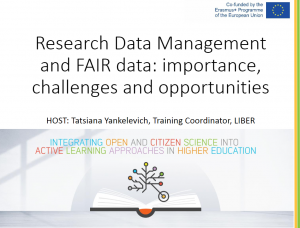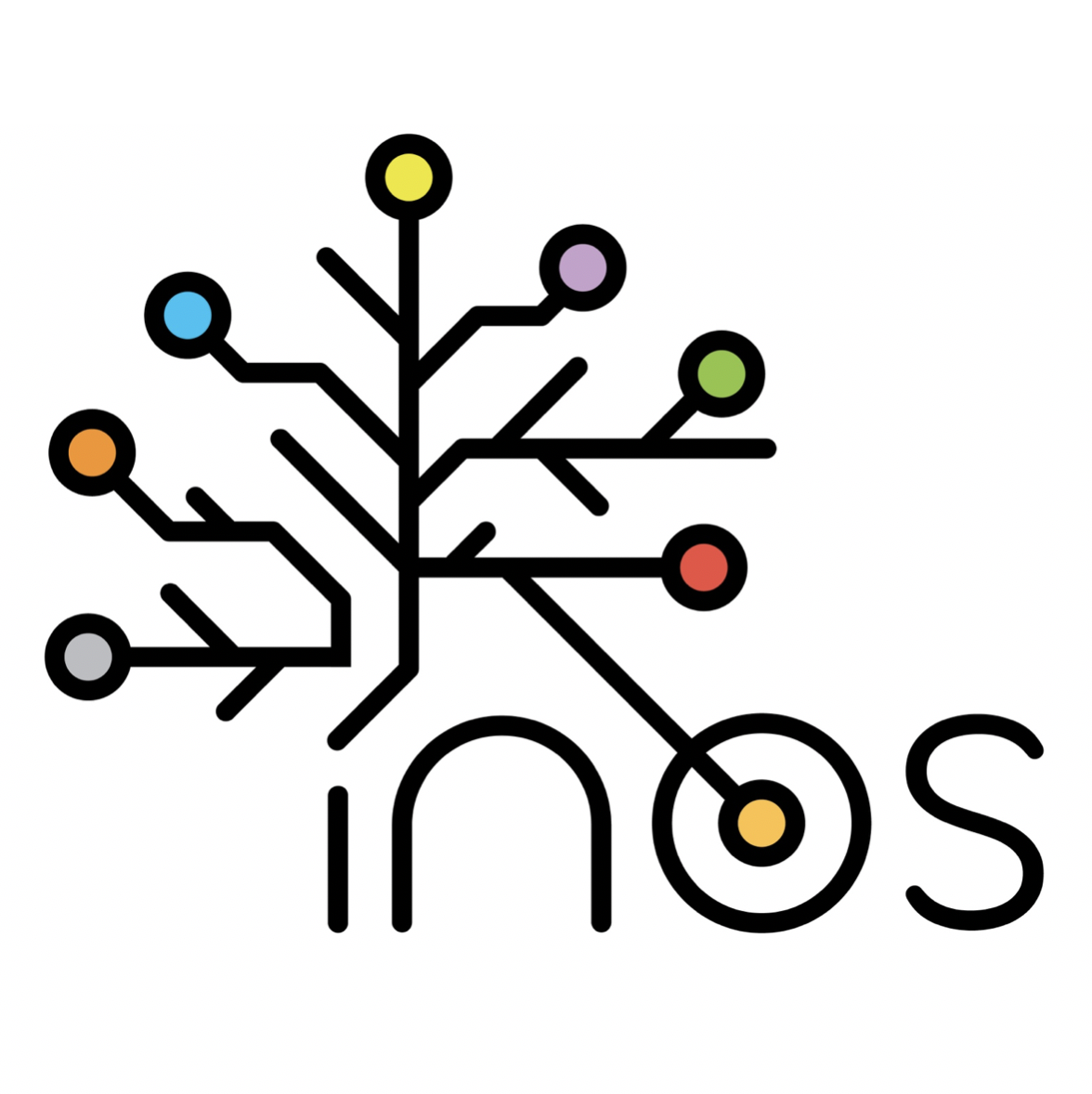07 Jul INOS LTTA: Research Data Management and FAIR data: importance, challenges and opportunities
On Thursday, 28 May, the INOS project: Integrating Open and Citizen Science into active learning approaches in Higher Education organised a virtual Learning and Train-the-Trainer Activity (LTTA) for our team of project partners. The main goal was to enhance the project partners’ skills in order for them to be able to deliver Open Knowledge and Open Innovation Activities later in the project.
 LIBER took the lead on the training, organising a virtual training session on Research Data Management entitled ‘Research Data Management (RDM) and FAIR data: importance, challenges and opportunities’. Our two trainers who led the session with lectures, discussions and an interactive game, were:
LIBER took the lead on the training, organising a virtual training session on Research Data Management entitled ‘Research Data Management (RDM) and FAIR data: importance, challenges and opportunities’. Our two trainers who led the session with lectures, discussions and an interactive game, were:
- Dr Birgit Schmidt, Head of Knowledge Commons, Göttingen State and University Library
- Dr Heather Andrews, Data Steward, Faculty of Aerospace Engineering,TU Delft
Following an ice breaking exercise, Dr Schmidt provided an overview of the training on RDM at Göttingen, focussing on general considerations and principles. She structured her presentation around four main questions:
- What is data?
- What is the distinction between FAIR and Open data and the motivation behind these practices?
- What constitutes RDM in a university setting?
- Why should we ‘deal’ with data?
Dr Andrews continued with a drawing game, leading the participants to understand that when instructions are not clear, the content might not make sense. The exercise was of particular relevance because, while participants had different roles in their institutions, the clarity of instructions was of equal importance for all of their work.
The game led to a discussion about the difficulties when creating guidelines for data usage and the role of Data Stewards in creating awareness and helping researchers realise that data management is intrinsic to their research. Good data management as a pre-requisite for Open Science was particularly highlighted. If researchers take care of their data from the beginning of the research process, it is much easier to manage their data during publication.
Dr Andrews pointed out that planning ahead is a key best practice when handling data, instead of having to deal with problems at the end of a project. A Data Management Plan (DMP) as a living document, is essential. Her experience shows that researchers that have dealt with a DMP seem to see the value in its use and on average have a better understanding of FAIR principles, Open Science. Such researchers manage to organise their research more efficiently.
Both trainers stressed the importance of incorporating RDM early on into the research cycle. A to-do list for researchers/instructors is essential, as is taking care of the metadata. These notions were further reinforced during the discussion with the participants, which primarily centered around the questions of How to store sensitive data and What types of storage can be used.
The training was well-received by the participants, who actively participated and asked questions. Should you find the topic interesting, feel free to look through the slides the trainers have agreed to share in the spirit of Open Science on Zenodo.

